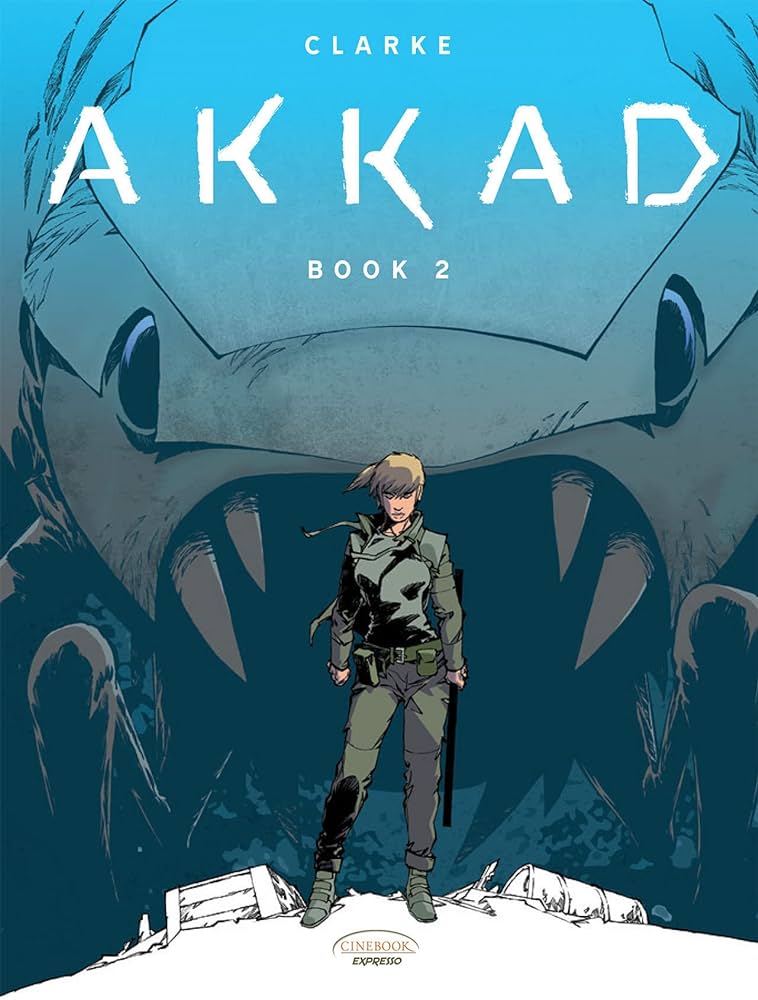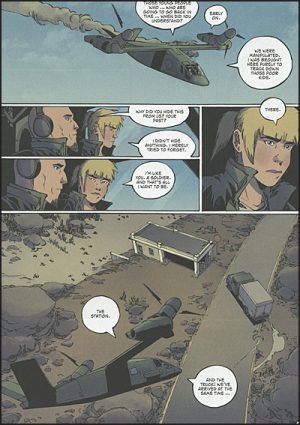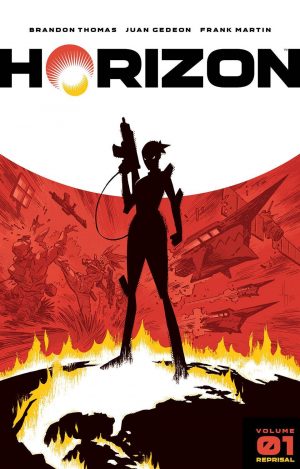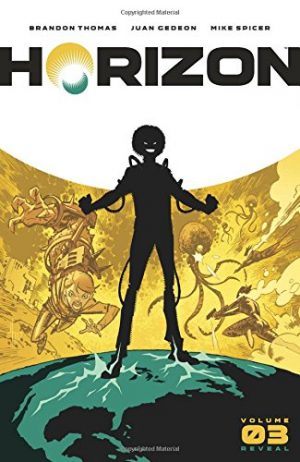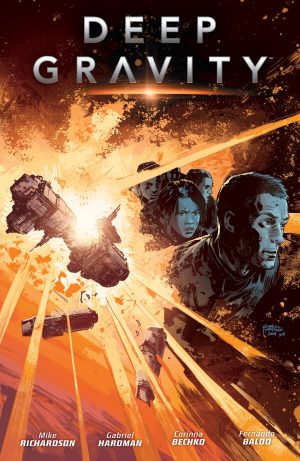Review by Roy Boyd
It’s unlikely anyone would start reading a two-part series with the second book, so it’s probably safe to assume anyone reading Akkad Book 2 will be aware of what’s gone before in Book 1, and if not, the back cover blurb does a fine job of relaying all the salient points. Earth has been invaded by giant dimension-crossing alien bugs that are stealing away parts of the planet’s surface. The human response to this predicament is to artificially boost the brainpower of a bunch of waster teens so they’ll work together to come up with a solution to the problem. Which, when written down in black and white, seems like a somewhat roundabout, if not downright bonkers, approach.
This volume largely consists of a long chase, though all our characters come together at the end for a denouement so convoluted and timey-wimey it could be a Doctor Who script by Steven Moffat. It all seems to make sense, or as much as any storyline like this ever does. While it may wrap up the troubled teens’ story in a manner that serves the plot, it effectively abandons the alien invasion element of the tale, and gives us very little closure on that aspect. Without wanting to appear unsympathetic to the plight of teens who have been forcibly addicted to alien cells (hey, it could happen to anyone), it seems reasonable to want to know what happens to, well, everyone else in the world.
So while it may be presented as an alien invasion story, it’s actually a story of these teens and their personal issues. The alien aspect of the tale merely provides a few plot devices necessary for the plot to go where Clarke wants it to go.
Clarke’s artwork is always okay to good, but never flashy. Workmanlike would be a fair description, if that’s not damning with faint praise. There are still lots of talking heads, although that’s an ever-present danger when concentrating on character rather than blowing shit up. The ending, while working for the story, is an anti-climax, and the finale would have benefitted from more fireworks.
Characters speak disparagingly of superhero comics, saying our group don’t fire lasers out of their eyes or anything. However, that particular route – while perhaps unimaginative – would at least present the possibility for exciting set pieces. What we get instead is a bunch of kids who become super-smart and really good at maths. Okay, there’s a bit more to it, but not a great deal, and lots of unlikely things have to happen for the story to do all the creator wants of it.
